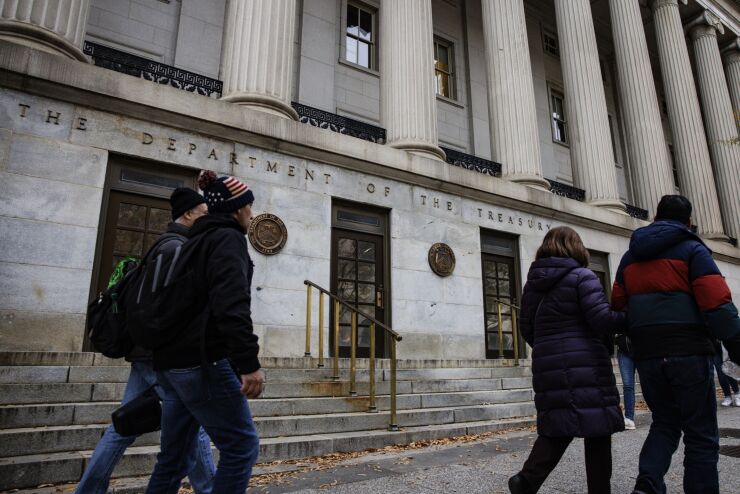(Bloomberg) --US Treasury auctions are exerting a growing sway over stocks, underscoring how the path of interest rates is gripping markets of late.
That's the take from Citigroup Inc. data showing that the S&P 500 Index has moved about 1% in either direction on auction days since the start of 2022, eclipsing the prior decade's average.
Of the 22 sales analyzed, all of 30-year bonds, subsequent moves in stocks were bigger than for monthly payrolls data – which traders typically sweat over to assess the health of the economy and Federal Reserve policy. Ten-year auctions produced a similar result, according to the study, led by Stuart Kaiser, Citigroup's head of US equity trading strategy.
Their analysis leaves equity traders on high alert for Thursday's $24 billion sale of 30-year auctions in a busy week for US government borrowing. A 10-year auction Wednesday drew slightly weaker demand than expected.
The significance of US borrowing plans was evident last week, when Treasury's announcement of a smaller-than-expected boost to bond issuance buoyed the S&P 500. The release was as much a focus that day as remarks from Fed Chair Jerome Powell, which traders interpreted as a signal the central bank was likely done hiking interest rates.
Amid increasing federal deficits, the amount of marketable US debt has ballooned to about $26 trillion, from roughly $17 trillion at the start of 2020.
Stepping Back
And while auction sizes have jumped, some traditional buyers aren't participating, says Althea Spinozzi, a fixed-income strategist at Saxo Bank A/S. The result is that some auctions have tailed, meaning they've required higher yields to entice buyers.
"We have seen that whenever an auction tailed in the past few weeks, the market followed, selling US Treasuries," she said. Depending on how much yields rise in such cases, "the impact in the stock market can be more considerable."
It's not to say higher yields are a lock after a soft auction. Wednesday's 10-year sale produced a tail and yields still fell, in part as traders focused on slumping oil prices.
Investors are also monitoring auctions and their impact on yields because of their potential influence on the Fed's path. That's because higher long-term interest rates lead to tighter financial conditions, potentially reducing the need for an additional rate hike.
This week, Fed Governor Christopher Waller called a recent run-up in yields an "earthquake" for the bond market, noting that the 100-basis point rise in 10-year yields since July has captured "a tremendous amount of attention." Governor Michelle Bowman said it was too soon for officials to know the full implication of the broad rise in yields.
The fixation on auctions is likely to continue as long as the Fed maintains its higher-for-longer stance, says Pooja Kumra, a rates strategist at Toronto-Dominion Bank.
"But if we see some stream of softer growth data, market focus will return to Fed policy cuts, which is positive for US Treasuries," she said. "Yields, in theory, impact funding rates for the private sector."






